The internet is a fascinating place. It allows people to find products and services, get in touch with family and friends, watch videos, listen to songs, do their banking work, and play games. However, all these wonderful aspects of the internet may change after 14 December, after the Federal Communications Commission votes to repeal net neutrality.
Net neutrality is a contentious topic in the US. Those for net neutrality state that changing the status quo would adversely affect small and local businesses and consumers while those against net neutrality believe that the existing laws are too restrictive and need to change to give more freedom to the content that is available in the World Wide Web.
Before delving into how repealing net neutrality would affect local business, it is necessary to understand the premise of net neutrality.<>
What is Net Neutrality?

Net neutrality refers to the principle that all internet traffic is treated and considered equal. There is no distinction between who posts the content and why, and all types of content are meted the same treatment. It is this equality that allows any and everyone access to the information they require and it has resulted in creating a dynamic online world that people know today as the internet
However, this is set to change. Come December 14, 2017, the Federal Communications Commission (FCC) under the aegis of the chairman, Ajit Pai, will be voting to repeal the Obama administration’s Open Internet Order, which was put into place in 2015.
The Open Internet Order prevents broadband providers from charging more for internet fast lanes to access certain content and blocking or slowing down certain content. Those who are against the repeal claim that by getting rid of the existing law, internet service providers will have complete control over the internet and they will get to decide which content is the winner and which the loser. In other words, certain content will get preferential treatment while other content will get step-motherly treatment.
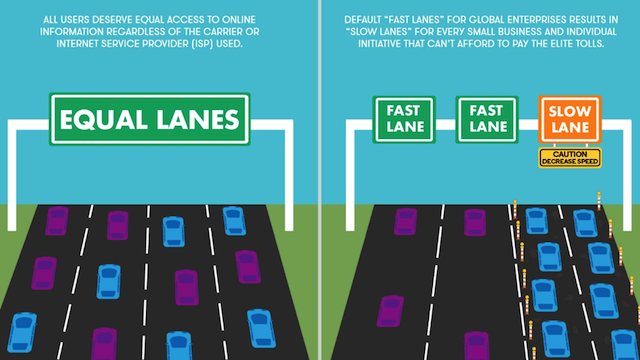
The current rules put internet service providers (ISPs) under a utility-like law in accordance to Title II of the Communications Act of 1934.
What Does the 2015 Open Internet Order Enforce?
In 2015, the then commissioner of the FCC, Thomas Wheeler, too was against enforcing complete net neutrality. A leaked document in 2014 revealed that Mr. Wheeler was planning to make it easier for ISPs to receive payment from companies to provide their content on fast lanes so that internet users could find it more quickly. However, that was not to be. Rumors suggest that President Barack Obama was instrumental in changing Mr. Wheeler’s mind. The end result was 2015 Open Internet Order under Title II, 1934 Communications Act.
The regulation enforces many different rules, including the following:
-
ISPs have to disclose hidden fees and data caps
-
ISPs are prevented from exempting their own video service from the data caps that they enforce on mobile internet users while charging video service of their competitors and restricting the service to a data cap
-
Stopping the ISPs from slowing download speed of competitors’ apps and websites
-
Preventing ISPs from forging contracts with large content companies that allow traffic to flow to content of these companies (preferential treatment)
-
Allowing ISP competitors and customers to lodge complaints about their internet service provider’s conduct if they believe it is unfair and unjust
Repealing Net Neutrality
Net neutrality has received support from tech giants like Google and consumer groups. However, the existing regulation has been severely criticized by Mr. Pai, the current FCC Chairman, and internet service providers.
Mr. Pai opined that the FCC cannot be responsible for business models of ISPs nor will the Commission be looking to prohibit services, applications, and products that could spur competition. He is of the opinion that the FCC should be used to establish rules that allow companies to compete; and consumers should be the ones to decide the winner and loser and not the administration, as was the case with the Obama administration.
It is anticipated that before the 14 December vote, there is bound to be a battle with those who are against repealing of the existing regulations. Already, about 21m comments have been submitted to the FCC, and free speech activists are in touch with legislators trying to convince them not to accept the plans of the FCC. Whether this will yield any result it not certain, but those in favor of net neutrality are going guns blazing and trying to stop the FCC from handing over the internet to ISPs in a silver platter.
Nancy Pelosi, who is a Democratic leader, has called the FCC decision to repeal the Open Internet Order an assault on innovation, entrepreneurship, and competition which need internet to sustain.
Many voices of dissent have risen, and they have become more active, especially since there are suggestions that Russia may have interfered in US presidential elections with the help of fake news. Of course, that is a different story altogether, but it is intertwined with net neutrality and how paid content can sway opinions and democratic process. Many feel that Mr. Pai, who comes from telecom background, is giving internet providers what they want – full and total control of the internet to boost their bottom line.
As is expected on 14 December, the FCC will vote against the existing regulation. This will be a victory for cable and broadband operators. These operators, along with Mr. Pai (who incidentally is the former lawyer for Verizon) have stated that there is no need for regulation, which is an expensive burden on the operators and impedes innovation and investment.
Mr. Pai has said on record that the existing regulation is based on hypothetical harm and frenzied prophecy that sans regulation, it will result is doom and chaos.
Divided Tech Categories- TribeLocal
Those for and against net neutrality are fighting a bitter battle. The tech world is completely divided, with cable operators making the final push to take control of online content. Recently, the Justice Department started legal proceedings to prevent AT&T from taking over Time Warner. If the telecom giant takes over Time Warner, it will also gain control over CNN, Warner Bros, and HBO.
The Justice Department justified by stating that AT&T already owns DirecTV satellite business and distributes and creates content. Should AT&T end up owning the assets of Time Warner, it will be able to withhold programming from its competition and can force them to payer higher prices for content distribution.
Tech companies like Reddit, Amazon, Etsy, Wikipedia, and Google have joined forces to protect net neutrality. These companies have said that neutrality has given every company the same chance, be it big or small, and as a result, net neutrality has spurred innovation.
Fight for Net Neutrality
Free speech activists are concerned that eliminating net neutrality would result in online censorship. These activists have planned a number of protests on 7 December 2017, which is a week prior to the vote by FCC. These protests will take place across the US at Verizon stores.
Evan Greer, Campaign Director, Fight for the Future, believes that the modern generation is angry about measures to do away with net neutrality. It will take away free speech and that is why internet users are joining the fight and protests.
Mr. Greer believes that by having protests across the nation, legislators would have to answer their constituents as bureaucrats cannot just pass the anti-neutrality laws with answering the Congress.
In fact, on 18 May 2017, the FCC took an initial vote which they claim would restore the freedom of the internet from the archaic Title II regulation. After the vote, the FCC did not plan to enforce any changes in Title II. Instead, it called upon the public and companies to give their views and opinion. This led to the floodgates being opened and many free speech organizations and activists, tech companies, and ordinary citizens bombarded FCC and lawmakers with their views.
They all said one thing – net neutrality is important and should not be touched. However, the FCC believes that Title II has made internet providers complacent. They are not investing enough money to upgrade their infrastructure and this could have an adverse effect not just on the internet, but the nation as a whole.
Legal Battle for Net Neutrality
In 2016, the Open Internet Order won an unlikely legal battle when a federal appeals court upheld the legality of the regulations.
After the Obama administration brought in the regulation in 2015, internet service providers decided to challenge it in the court of law. The ISPs stated that while they were not against the rules, they did not appreciate that the FCC had overseen the way the internet works in the country. The ISPs said that the regulations that have put the FCC in control would hinder innovation and prevent investment in the industry.
However, the D.C. Circuit Court of Appeals went ahead and ruled in favor of the FCC while noting that the Commission did not have the authority to categorized broadband and internet under the Title II of the Telecommunications Act.
In the same court case, internet service providers wanted to be protected from anti-blocking laws. However, the court went on to rule that the Open Internet Order would be applicable to both wireless and fixed-line internet.
Legal experts explained that the ruling by the federal appeals court meant that the regulation pertaining to net neutrality would stay in place as the court had upheld the rules, but the federal government, through the FCC, would have to supervise the way internet providers manage the traffic that comes onto their networks. Hence, the FCC was mandated to review any complaint filed by competition and/or consumers.
When appeals court verdict came out, Mr. Wheeler had said that the internet would stay a platform that encourages innovation, economic growth, and free expression. He also stated that the Commission would enforce rules for fixed and mobile networks to ensure the internet stays free and open.
This ruling meant that phone and cable companies had to treat all traffic equally – no blocking competitor’s sites and content and no fast lanes for companies with deep pockets. It was a ruling that was celebrated by activists and tech companies that supported the regulations. However, the celebrations may come to an abrupt end on 14 December 2017 when the Federal Communications Commission votes to overturn the Open Internet Order.
ISPs Take on Net Neutrality
ISPs have been quite vocal about their opinions. They have said that they are in favor of net neutrality, but do not support the regulations which are archaic and too stifling. However, the three major internet providers have tried to justify their stand after the negative attention they received.
AT&T: AT&T participated in the Net Neutrality Day of Action held on 12 July 2017. However, the telecom’s mission was a little different from that of other protestors. The company felt that the current laws under Title II were outdated and allows lawmakers to bipartisan laws.
The network provider went on to state that the lawmakers should ensure there is a clear legal authority that ensures that internet is open and fair rather than laying down rules and debating whether the internet should be open or not.
This opinion by AT&T did not go down well with the organizers of Net Neutrality Day of Action, and they did not consider the company as part of the action. Instead, they accused AT&T of confusing people.
Verizon: Though Verizon did not officially take part in Net Neutrality Day of Action, it had the same opinion as AT&T. The company felt that the rhetoric was detracting from the real issue, which was protection. Hence, it encouraged people to get in touch with lawmakers to resolve this contentious issue, which has been going on for the last one decade.
The company said that the internet was extremely important and policies should be permanently in place rather than changing each time a new president is elected. Verizon said that rules should be enforced to protect the openness of the internet, but should not discourage investment.
Comcast: While Comcast did not participate in Net Neutrality Day of Action, it released a press release stating that the company did not think that net neutrality and Title II were synonymous.
The company said that the supporters of Title II were resorting to scare tactics by informing laypeople that ISPs wanted to slow down, block or hasten service for a select group of customers. Comcast has filed its opinion with FCC by laying down what it calls valid points that will ensure the internet remains open without the Commission regulating it with outdated laws and regulations.
All three ISPs informed their customers that they would have access to fair internet regardless of the decision that the FCC took.
Net Neutrality and Online Marketing
With worries about fast lanes, slow lanes, and blocking, online marketers are wondering how net neutrality affects them. When the FCC votes to repeal the 2015 Open Internet Order, it will have serious ramifications for digital marketing.
Internet marketing experts have said that when (not if) net neutrality is revoked, ISPs will charge customers to access sites like Google, Facebook, Twitter, and MSN. And, if customers pay more, they will be able to access second tier websites. However, to access all websites, customers would have to pay even more.
This is one business model that internet providers may favor if there is no net neutrality. However, there are several other business models. The important fact to note is that internet providers will not be shackled by regulations and hence, will not treat all content equally. They will be charging customers and website owners to access tiered internet.
However, for small and local businesses, non-net neutrality could spell death knell. Net neutrality benefits local businesses in the following manner:
Facilitates Competition: Websites, both local and national, can compete with one another without paying ISPs. They are not restricted to serving just those customers who are paying their internet providers to view certain websites.
Allows Any Business to Join the Fray: As long as a local business has hosting and website, it can enter the world of online marketing and SEO like any other business with an online presence. This levels the playing field and your business get the same treatment as Facebook or Amazon.
Large Companies Don’t Enjoy Inherent Advantage: Large companies have deep pockets. They can pay ISPs any amount to be in the tier they like, should net neutrality be abolished. However, the same does not hold true for local businesses, as they don’t have too much money or unlimited resources. Hence, it will be tough for them to enter the online world. Thankfully, with net neutrality in place, this is not the case.
No Need to Pay ISPs: Today, local businesses do not have to approach internet providers like Cox, AT&T, Comcast or Verizon to be in the fast lane. This is because net neutrality ensures small businesses are always in the fast lane like any other website. They just need to focus on search engine optimization to ensure they rank high in SERPs.
No Worries About Contacting Multiple ISPs: In the US, there are many internet service providers, some big and some small. Imagine the work it would be to contact each of these providers to get into the fast lane? Well, that is not the case presently. While ISPs are merging and their numbers are reducing, still it would be challenging and overwhelming to contact each provider and ensure your local business can be present to their customers.
No Rigging of Marketing and Quality: Today, net neutrality ensures that businesses that do online marketing right and offer quality products and services are the most sought-after businesses in the World Wide Web. However, if net neutrality is repealed, the entire system becomes rigged as those who pay will be found while others will not. While even today big businesses have the advantage of money power and resources, it would be unfair to give them more advantage than they already have.
Consequences of Removing Net Neutrality
As a small business, you should worry if net neutrality is done away with. It will have far-reaching effect than you can imagine. Some of the effects of doing away with net neutrality when it comes to small businesses are as follows:
-
Fast Lanes: Many proponents of net neutrality believe that elimination of net neutrality would make fast lanes a default system. In this system, ISPs would divide online content into tiers. Certain services and information will be available quickly while others would be slower to reach consumers or may not be shown at all.
-
Free and Paid Access: ISPs will allow users to access certain services free of cost. However, if users want to access other services they would have to pay for it. This is not the case, thanks to net neutrality, but could become a reality when net neutrality is repealed.
The reason net neutrality is contentious is that at non-neutral does not necessarily mean that consumers and businesses will suffer. They may not. Presently, consumers just search for things they want and ignore everything else on the internet. So, if they get a certain part of the internet for free, they may not complain. However, this dilutes the very essence of net neutrality and that is why there is so much talk about it. While consumers may not be affected terribly with revocation of net neutrality, the principle gets harmed. And, consumers would have to pay their ISPs to enjoy the same level of access that they have today. Also, website owners, like small businesses, would have to also pay internet providers to reach their target audience. This is where things become murky as there is a guarantee that the business’ target audience has paid ISPs to get access to services, products, and information that the small business is offering.
Net Neutrality and Local Business
Most local businesses spread the word around by having a compelling online presence. Net neutrality allows that as it levels the playing field. This means that people searching for products, information or services can access what they like on-demand. This access is not governed by the money the users or businesses have. However, if you remove this level playing field, internet service providers will be in total control. This will eat competition, limit consumers’ access and slow down the internet.
Presently, a consumer can access Netflix to watch movies or show as and when they like and that too quickly. However, with net neutrality gone, Comcast can restrict the person from accessing Netflix. Instead, they ensure the person has faster access to Comcast’s video streaming service. In other words, Netflix video streaming will be slow, but Comcast’s will be fast. So, basically, the consumer loses their right to choose what they like. Instead, with net neutrality gone, they are forced to accept what is offered to them. Should this happen, the impact on local businesses will be devastating.
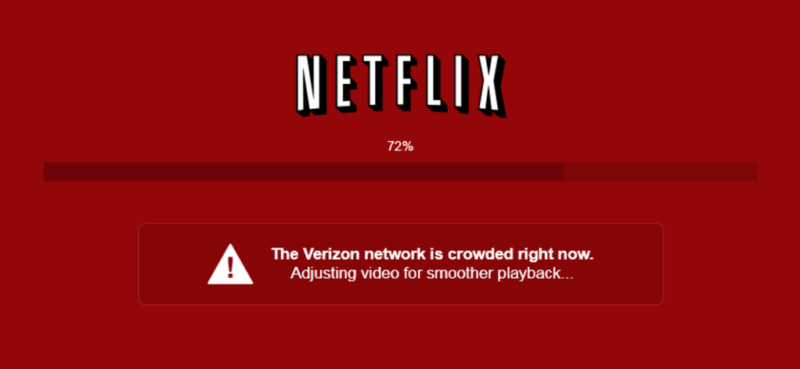
Tumbling Search Engine Rankings
Presently, local businesses focus on local SEO to ensure they get found for the keywords that their site is optimized for. They also use Google My Business listing, citations in online directories, social media, guest posts and more to optimize for search engine. However, these efforts will be vain as keywords will become meaningless. Just those businesses that pay ISPs will be found while others will not be found. Result – plunging search engine rankings.
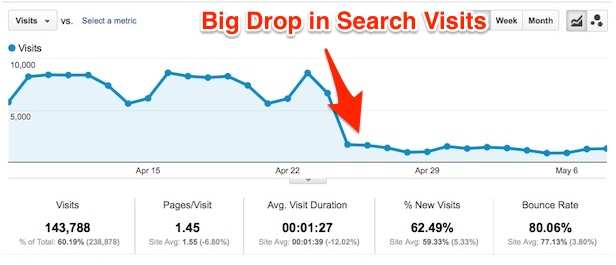
Limited or Difficult Access
Even if the local business is present on the net, consumers will find it difficult to access their site when net neutrality goes away. With net neutrality gone, consumers will have to pay more to enjoy fast download speeds and access different sections of the internet.
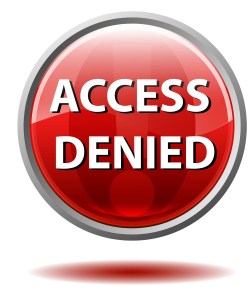
Hence, just those consumers who pay to access all parts of the internet will be able to visit local business websites while the others will not be able to do it. This means for those consumers who don’t pay, the pages will either take too long to load (like the dial-up era) or not load at all. Hence, they will leave the website of the local business and try and find another site to help them meet their needs. This, in turn, will affect sales, revenues, and profitability of small businesses.
Competition Goes Out of the Window
Local businesses compete with one another and big companies to market and attract their target audience. This is because the neutrality of the internet allows them to do so. However, no neutrality will kill competition. Why? Companies that have money will have the potential to slow down their competition’s loading time by paying ISPs. No longer will searches be based on SEO. Rather, it will be based on how much money a company pays ISPs to be found. The more you pay, the quicker you will be found. This is the premise that pro net neutrality activists are talking about. In essence, this step will kill local businesses as healthy competition will be replaced by wealth.
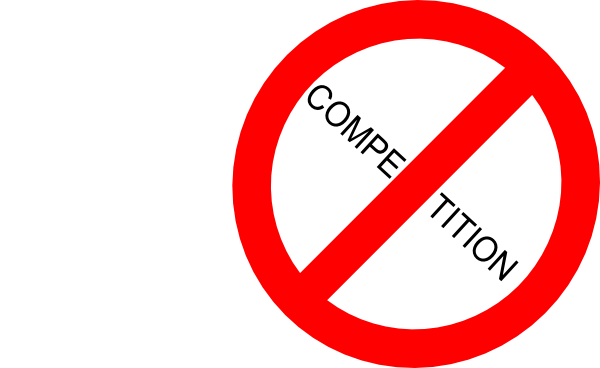
Even Mobile Internet Will Be Affected
Today, local businesses are building responsive sites to reach out to mobile phone users. Research shows that when a user does a local search, it means that they are ready to make the purchase. However, with no net neutrality, local businesses can forget about mobile phone users being able to find them as mobile internet providers will be controlling what mobile phone users can access.
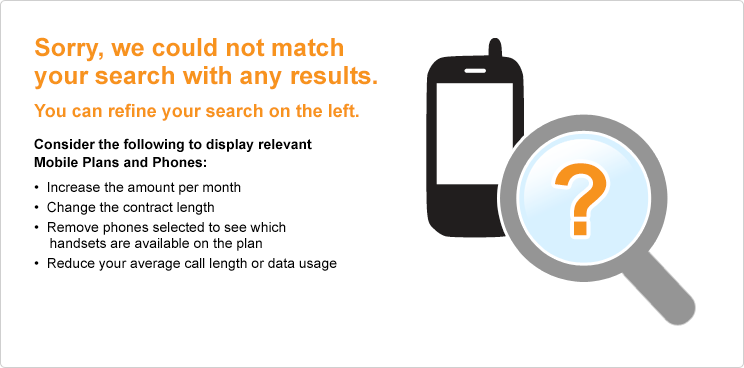
ISPs Will Pick Winners and Losers
Your marketing efforts will go in vain as internet providers will hold the key to making local businesses successful. They will control the internet and determine where the traffic goes. The more dominant companies (read the ones with money) will be able to pay the providers to keep their competition at bay and ensure the download speed of their websites is fast.
Ironically, even today, website download speed has an impact on search engine rankings. So, if a local business’ website’s download speed is reduced by the internet provider, it will adversely affect their search engine ranking and there will be nothing the business will be able to do to improve the download speed other than paying the provider.
Lead to Competition Among ISPs
The Open Internet Order ensures that no internet provider can compete with another provider. Basically, big and small providers offer virtually the same speed and not restrictions. However, if Title II is removed, ISPs will start offering flexible pricing and maybe even free data plans for a monthly fee. While the bigger ISPs will be able to absorb the losses, if any, the smaller providers will not be able to do the same. Hence, this will cause the smaller ISPs to fail and along with that, even their customers will fail.
The other side of the coin states that if net neutrality is removed, smaller providers will be forced to be more innovative and this could lead to them coming up with more attractive plans for their customers. They may also end up diversifying their product portfolio. However, at the moment this is just hearsay with no evidence to back it.
Financial Burden

If internet providers charge a premium for higher speeds and ensure that smaller businesses can be found on the internet, local companies may not be able to afford it. Well, at the moment it is all speculation as no one knows how much these providers will pay once the Title II is repealed. Nonetheless, some experts believe that the cost will high and local businesses will be spending beyond their means to gain online visibility and promote themselves.
To foot the cost of being found online, one can expect local businesses to give preference to salary cuts and increase rates. This could result in stifling of the local economy and job market, at least till these local businesses gain a name for themselves in the online realm.
No Choice to Users
Many consumers like supporting local mom and pop stores and entrepreneurs as they realize that the money they spend stays in their communities and is not taken to the corporate headquarters like what the big companies do. Hence, this money is used to within the community and also helps create jobs. So, consumers have the ability to conduct research and find the products and services that they need within their local market. This choice is not influenced and is solely based on what the consumer wants and believes. As a result, local businesses cater to this select group of customers.
However, the moment consumers have to pay to access the fast lanes that freedom is taken away from them. They only get to see those businesses that the internet provider wants them to see. Hence, this will hinder consumers from finding websites of local businesses and they will not know that these businesses exist and offer an alternative to bigger and larger businesses.
Smaller Businesses Will Lose Out
If the US does away with net neutrality, smaller business will have no choice but to get into the slow lane. They will no longer be able to compete with large companies and brands on equal footing, as they will not have the means to pay the fees that internet service providers will demand to make their sites visible to their target audience. As a result, small local businesses will have to contend with plunging sales and revenues and before you know it, they will be shutting shop.
Loss of local business to a community is huge. It has a profound effect on the community. When local businesses close down, it adversely affects the economic growth of the city or town. It also leads to joblessness as local businesses offer job opportunities to all age groups within their community. This will lead to the town decaying and the crime rate will also increase. So, it is definitely not something that local people will want.
The Cause for Concern
If net neutrality is done away with, not just consumers, but also small, medium and large businesses should be worried. It is a risk that they can ill-afford, according to experts. The current administration is against net neutrality and that is a big risk that the society cannot take.
Also, the current chair of the FCC, Mr. Ajit Pai, has been very vocal about net neutrality and how the regulations are archaic. He has been fighting the laws and rules quite hard and has even managed to overturn some of them, like the regulation to make smaller internet providers more transparent when it comes to net neutrality.
Net neutrality creates a marketplace for local businesses to sell their products and services. However, what has come out from surveys is that it is not a politicized issue at the moment. A majority of Democrat as well as Republican voters supports net neutrality. These surveys show that these voters want net neutrality to become the law, but the FCC and Congress are against it. Activists state that this is because ISPs have spent a lot of money on lobbying and hence, are trying to change the politics to suit their needs. And, the worst part is that this is perfectly legal in the US as that is how the democracy in the nation functions.
The Way Forward
With FCC set to vote on net neutrality on 14 December 2017, websites, businesses, online communities, free speech activists and internet users have joined forces. They have decided to take on the FCC and its attack on the neutrality of the internet.
Many online experts ask laypeople to get in touch with their Congress person, local and federal representatives and senator to let them know that they are against repealing of net neutrality. Even Europe is waging this battle, where some tech companies like BitTorrent and Reddit believe that the rules, although similar to the US, are worse.
The EU does not allow paid prioritization, which many contend will be allowed in the US after the December FCC vote. However, the European Commission allows paid prioritization (fast lanes) to specialized services like telesurgery, HD video conferencing and IPTV, as long as general internet access does not slow down. If the European Commission feels that the internet service provider has gone against net neutrality, just the Commission has the power to decide whether this is a fact or not and then take action against the offending ISP. As a result, there is no distinction in capacity for general internet and specialized online services. Hence, ISPs can club many things under specialized services and offer them to bigger companies that can afford them.
Like the US, even EU does not count sponsored content as part of the user’s data cap. However, ISPs have the ability to make their content zero-rating and take payment from companies that want to make their data zero-rating. This means the European Commission will have to constantly monitor zero-rating data and ensure consumers and competition are not harmed. Each case, where consumers or competition is adversely affected will be decided on a case-to-case basis, whereas in the US, ISPs are categorized as common carriers and hence, different types of complaints can be handled by the FCC.
Another issue in the EU is that if an ISP cannot identify the type of application, it can relegate it to the slow lane. This is something that consumers and businesses are worried about in the US once net neutrality is removed.
How can you help?
There are 3 ways by which you can make your voice heard when it comes to Net Neutrality. We are listing down all of them, and you can pick and choose the medium that suits you best, or even better, all 3 of them:
-
These are the emails of the 5 people on the FCC roster who are for all intents and purposes, going to decide the future of the internet in USA.
Ajit Pai – [email protected]
Mignon Clyburn – [email protected]
Jessica Rosenworcel – [email protected]
Michael O’Rielly – [email protected]
Brendan Carr – [email protected]
You need to go straight to the source. Be civil, be concise, and make sure they understand that what they’re about to do will hurt the local businesses if it goes into effect. You can use the following template for the mail:
Subject: Net Neutrality Helps Small Business Thrive
Content:
Dear Mignon,
I work for a small “xyz” shop in San Diego, California that benefits greatly from Net Neutrality. You have the power to allow this policy to continue, so small businesses can create well-paying jobs with a low barrier to entry.
Please consider the economic impact of this policy, and how it greatly benefits small business while increasing competition. As we know, this leads to better products for consumers and better lives for Americans.
Best,
ABC | Shop Owner | XYZ
-
You can also text “RESIST” to 50409 which is a resist bot that will ask you a few straight forward questions. Once that is done, you can again message the bot after 24 hours, and follow the same procedure again.
-
Another way to spread the word is by signing up the petition “Do Not Repeal Net Neutrality”. It currently has more than 200 thousand people on-board and is accepting signatures till 12th December.
The Verdict
In the US, advocates of net neutrality are urging people to fight back to maintain the internet as it is. They believe this will help keep the internet free, open and competitive for businesses and users. Whether these actions bring about the desired results is not known. However, one thing is for sure – repealing net neutrality will adversely affect local businesses, who will not be able to compete in a paid online world with bigger companies and deep pockets.
Edit: Changes after the repeal vote that took place on 14th December 2017
Net Neutrality has been repealed. What now?
Net neutrality has finally been repealed after months of deliberation and protests across the country. This means that ISPs moving forward can are free to block, slow down, or charge for fast lanes for content on the internet. What can you do to stop that from happening? Let us point a few things that may help you:
- Apart from sending them an email, turn your email into a letter (probably quoting a few small business owners along the way), and send it to the Editors in your local and state newspapers. It will depend on whether you are trying to contact senator or representative, and you can change the recipients accordingly. Also, mention the legislator by name in that letter, and if you can fit their name in the title, it will be even better. For doing that, you would have to check the requirements for the newspaper and then make the changes accordingly. The reason why we suggest you do this is if the legislators know that they have been mentioned in their newspaper and their constituents will be reading it, then they are more likely to take an action on the policy, rather than just sitting on their hands. Getting re-elected is a powerful motive.
- Free Press will be suing the FCC and fighting this in Congress in the coming months. In the words of Gaurav Laroia, who is the Policy Counsel at Free Press, he said the following on a Reddit AMA (Ask Me Anything) hours after the FCC reached their decision
“We disagree with the FCC on their interpretation of the Communications Act. We believe the FCC didn’t justify its action with any real facts for abandoning Title II classification for broadband ISPs. Then there are the huge problems with the FCC’s process in this proceeding like not meaningfully engaging with the comments and not giving adequate notice about their plan to kill all the rules save some weak transparency provisions.”
Apart from this, you can visit BattleForTheNet.com to urge Congress to pass a resolution of disapproval and join 500K Net Neutrality activists at Team Internet, to show your support towards Net Neutrality. - Get together with 30-50 other people and get a business loan to start a co-op. WISPs cost approximately $50k to start. Divided by 50 people, that’s an $1000 loan that you can pay back over several years along with paying the monthly access fees. Certain activists estimated that it would only take roughly 25 customers averaging $50/month to break even. Toss in an extra $25/month until it’s paid off in a few years and you’ve got gigabit internet for $85/mo. Once the investment is paid off, you’ll have it for $50 per month and less if you increase subscribership.
We will continue to update this part as and when more news comes poring out. But one thing is for certain, if you are a small business owner, you can continue to fight and hope, and will continue to stand alongside you!














Pingback: Digital Connect Mag()
Pingback: Why Is Repealing Net Neutrality Harmful To Your Small Business? - Digital Connect Mag()